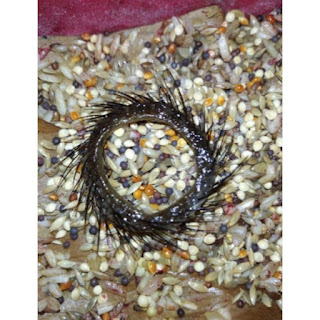Pig chains, also known as “tambi”, were an important symbol of wealth and status among the Dayak communities. They were made from iron or brass and were worn around the waist like a belt. The chains were decorated with intricate designs, and the length and weight of the chains signified the wealth and status of the wearer.
In the past, the Dayak people practiced a traditional form of agriculture known as “swidden”, or slash-and-burn, in which they would clear a patch of forest to grow crops. Pigs were one of the most important livestock raised by the Dayak people and were used in many traditional rituals. The pigs were considered to be a symbol of wealth and prosperity, and owning many pigs was a sign of wealth and status.
The Dayak people also believed that pigs had magical powers, and they were often used as a form of currency in traditional exchanges. When a Dayak person wanted to buy a wife or arrange a marriage, they would offer pigs as a form of payment. The number of pigs offered was often proportional to the wealth and status of the person making the offer.
The pig chains were often given as gifts to show appreciation and respect, and they were also used to repay debts. They were also used in traditional rituals, such as the “Ibanngit” ceremony, which was a celebration of a successful harvest. During the ceremony, the pig chains were displayed and danced around to the beat of gongs and drums.
The production of pig chains was a highly skilled process, and the chains were made by blacksmiths using traditional techniques passed down from generation to generation. The blacksmiths were highly respected members of the Dayak communities, and they were often commissioned to make pig chains for important events and ceremonies.
In recent years, the use of pig chains has declined among the Dayak people, as they have become less common in daily life. However, they remain an important part of Dayak cultural heritage, and many Dayak people still treasure the pig chains passed down to them from their ancestors.
In conclusion, the Dayak pig chain is a symbol of wealth, status, and cultural heritage for the Dayak people of Borneo. The intricate design and craftsmanship of the chains reflect the importance of pigs in Dayak culture and the belief in their magical powers. The pig chains serve as a reminder of the rich cultural heritage of the Dayak people and their traditional customs and beliefs.







No comments: